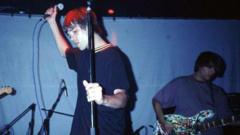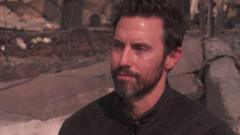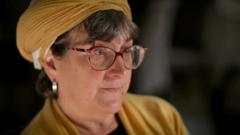Redmi is first to bring the Snapdragon 7s Gen 3 to Europe

Today Xiaomi’s subsidiary Redmi brings its affordable Note 14 series to Europe, along with the Western debut of the Snapdragon 7s Gen 3. After launching in August 2024, the Qualcomm chip had to sit and watch while the flagship Snapdragon 8 Elite came along two months later, drew more attention, and even launched in a Western phone first in the form of this week’s OnePlus 13. But the more affordable Snapdragon chip is now getting its dues.
There are five phones in the Note 14 line, ranging from the 4G-only Note 14 up to the Note 14 Pro Plus 5G, the only phone in the series powered by the Snapdragon silicon. The entry-level chip in Qualcomm’s Snapdragon 7 series, the 7s Gen 3 is a 4nm chipset that’s most notable for making the jump to Arm’s v9 CPU architecture, with a 2.5GHz Cortex-A720 core at the heart of the processor. The other four phones use a variety of MediaTek chipsets.
 Image: Redmi
Image: Redmi
Starting at £399/€499.90 (about $500), the Pro Plus is positioned as a natural competitor to Google’s $499 Pixel 8A, but outpaces it comfortably in most hardware specs, with improved IP68 water-resistance; up to 12GB RAM and 512GB storage; and a larger, brighter OLED display protected by Corning’s flagship-grade Gorilla Glass Victus 2. The big trade-off is on the software side, especially given that Google has guaranteed Android updates for the Pixel 8A until 2031.
The other Note 14 phones offer a gradual drop-off in specs and connectivity. The Note 14 Pro 5G shares the Pro Plus model’s display, 200-megapixel camera, and IP68 rating, but drops to a cheaper MediaTek 7300-Ultra chipset and slower charging. The regular Redmi Note 14 Pro is similar, but ditches 5G for 4G connectivity and is only IP64-rated. The Note 14 and Note 14 5G have reduced specs across the board — though the 4G model’s IP54 water-resistance still impresses for a phone that costs less than half of a Pixel 8A.
 Image: Redmi
Image: Redmi
All four phones launched in China and then India late last year, but today go on sale in ten European countries, including the UK and Germany. Somewhat confusingly, the European models have altered specs from their Asian counterparts — the Pro Plus 5G has completely different cameras and battery, for example — which isn’t uncommon for Redmi.
The Redmi Note 14 series already has stiff competition from within the Xiaomi family, after the similarly priced Poco X7 and X7 Pro launched globally yesterday. Those phones lean on IP68 ratings and big batteries — 6,000mAh in the Pro — in the effort to draw budget buyers away from Google and Samsung.

:max_bytes(150000):strip_icc():format(jpeg)/paris-hilton-house-fire-011025-1aa-ffe97801e17c41878aee87ac55b3c82a.jpg)
:max_bytes(150000):strip_icc():format(jpeg)/TikTok-Generated-24-Billion-010925-tout-bd073ee57e994b18b6de07ee29e10f69.jpg)
:max_bytes(150000):strip_icc():format(jpeg)/peo-walmart-vacuum-deals-tout-bfa7813f25d240e6a713c2149e399454.jpg)
:max_bytes(150000):strip_icc():format(jpeg)/mariska-hargitay-010925-2-09f40d100eb243b784fcb7aaecb41c3c.jpg)







